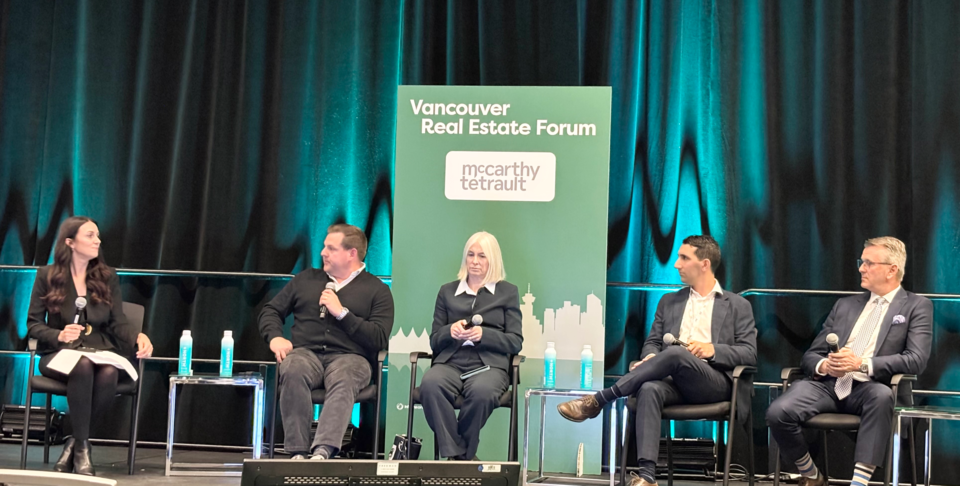Inclusionary zoning and tenant protection policies are vulnerable to unfairness and misuse, a rental expert told this week’s Vancouver Real Estate Forum.
Because income-testing is difficult and “social engineering” decisions are required, inclusionary zoning—which requires a certain ratio of units to be rented at below-market prices—should be scrapped and replaced, said Cyrus Navabi, president of Qualex-Landmark Living Inc.
“I think in several years we’ll look back and say this was a really terrible idea,” he told an April 24 panel at the Vancouver Convention Centre.
Generally, inclusionary zoning requires that 20 per cent of a building’s units be secured at 20 per cent below average city rents. Compared to a unit in a new purpose-built rental tower, it’s actually more like 50 per cent below market, Navabi said.
“Why should a certain percentage of brand-new, transit-oriented, quality rental units be locked at 50 per cent below market for a lucky few in perpetuity?” he asked.
Although a stable economy requires reasonable tenant protections, this policy is based on outdated economic modelling and is causing some projects to never see the light of day, he said.
“It’s simply not affordable to make 20 per cent of your building be worth less than the cost of developing it,” he said.
Navabi said it would be more efficient for government to fund varying housing subsidies to a wider range of British Columbians based on more precise income-testing, from a pool of money that could be funded in part by developers.
Meanwhile, policies that give displaced tenants the right of first refusal are also problematic, he said.
“They might have a Ferrari in the garage, and I’ve heard anecdotes about stories like this from several landlords, where that tenant gets to come back into the brand-new building at the lower of 50 per cent below new market or what they used to pay.”
Navabi asked: “Why is that fair, and why did we as a society decide that new families, new immigrants, new renters need to subsidize … people who are not [properly] income-tested and have simply been historically lucky?”
The Qualex-Landmark leader was joined Thursday by other panellists who spoke about topics related to the multi-residential market, including next Monday’s federal election.
Brad Jones, chief development officer with Wesgroup Properties LP, lambasted government meddling.
“The other thing we’ve asked every level of government is just leave us alone for five years, just stop changing policy. There’s stuff you can do to make it better, but the best first step might be to just leave us alone,” he said.
Jones said hundreds of active policy consultations at all levels of government can affect any given project in Metro Vancouver.
“It’s become a full-time job,” he said. Despite being a developer, “I do not work in homebuilding. I work in government policy and that’s where I spend all my time.”
Wendy Waters, vice-president of research services and strategy with GWL Realty Advisors Inc., said the next government should ensure a steady influx of immigrants to replenish a rapidly retiring population, particularly in under-staffed sectors like construction and health care.
Brad Wise, senior vice-president and managing director, Western Canada, Cameron Stephens Mortgage Capital Ltd., questioned the wisdom of the federal government building homes directly, as the Liberal Party of Canada has proposed.
“It’s horrible policy for the government to get into trying to build homes. I think the better policy would be to incentivize the private sector to do it,” he said.
Wise also encouraged all national parties to embrace the deferment of capital gains taxes reinvested in other properties, which he said would unleash “a ton” of capital for new housing. This idea would resemble section 1031 of America’s internal revenue code.



